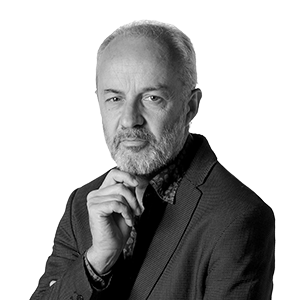

The title of this article is not a joke in bad taste or a boutade. This November 20th will mark half a century since the end of the dictatorship, but his long shadow continues to loom over Spanish society, with increasing intensity in recent times. Vox is working tirelessly to whitewash him. Franco doesn't rest in peace, and neither do we. On social media, it's occasionally trending topicAccording to the latest CIS survey, 21.3% of Spaniards believe that Franco's regime was good or very good, and among men the percentage rises to 26.8%. Naturally, Vox voters are the most favorable to the dictatorship (60%), but PP voters are no slouch (40%). Both Spains remain perfectly defined by the Caudillo. In history, buried continuities (family traditions, mentalities, inertia) are stronger than ruptures.
It's one thing for Spanish democracy to have become more homogenous, but quite another for forgetting the dictatorship to have won out over notoriously undervalued policies of memory. The Transition sought to turn the page to ward off the danger of a new fratricidal confrontation. The monarchy was the meeting point: democracy, yes, but no republican spirit. The king, none of the armed forces, embodied the renunciation of any rupture. Perhaps there wasn't any room to go further. We'll never know. We do know that, half a century later, this balancing act has led Vox to become the third political force in Spain as a whole and fifth in Catalonia. And the far right continues to rise in the polls. The wave of global authoritarian populism is playing in their favor.
Franco was a mediocre, primal, vengeful figure. He had no talent as a mass leader. He was not a Hitler or a Mussolini, those barbaric histrionics. Behind his reedy voice beat a keen instinct for power and survival. He catalyzed the fears of backward Spain (Church, army, landowners) in the face of republican social and political change in a world polarized between communist Russia and fascism. After devastating the country with a fratricidal war (Paul Preston holds him responsible for what he calls the Spanish Holocaust), his ultranationalism, the cold and routine terror he exuded, and his cult of personality shaped society for four decades, with external support from the United States within the framework of the Cold War. He died in bed trying to leave it all behind.tied and tied well". At first, he didn't succeed. But something profound has remained. How many young people today know, for example, what it is and what it means Guernica Picasso's? If you ask, you'll be surprised.
In the early years of democracy, people spoke of "sociological Francoism," a collective phantasm that allowed for grotesque but very real episodes like Tejero's coup d'état in 1981. Only after the Socialist victory in 1982 did it begin to languish in the midst. But it revived and was reincarnated in a new political formation that sets the discursive pulse of the right and that in Congress doesn't shout ""Everyone on the floor!" But almost.
This is how we ended up with a president of the Canary Islands, Magda Prohens (PP), who has repealed the memory law, mocking the left's supposed obsession with Franco. Obsession? The problem is that the right has no problem, no obsession with Franco. That they consider that we can neglect the memory of barbarism. And that nothing happens when, at demonstrations, their militants display raised arms and flags with the mousetrap. This is no longer just forgetting, it's an apology for the dictatorship. And in case anyone isn't clear, a dictatorship is the opposite of a democracy. Franco had no doubts: "Now we talk about democracy. We Spaniards have already known it. And it didn't work for us. When others move towards democracy, we are already returning." He said this in 1947, after the end of the Second World War. So calm. We hope we don't have to relive any return of authoritarianism, here, in the US, or anywhere else.
